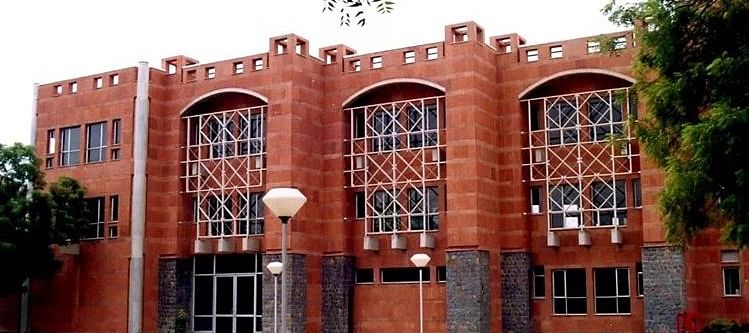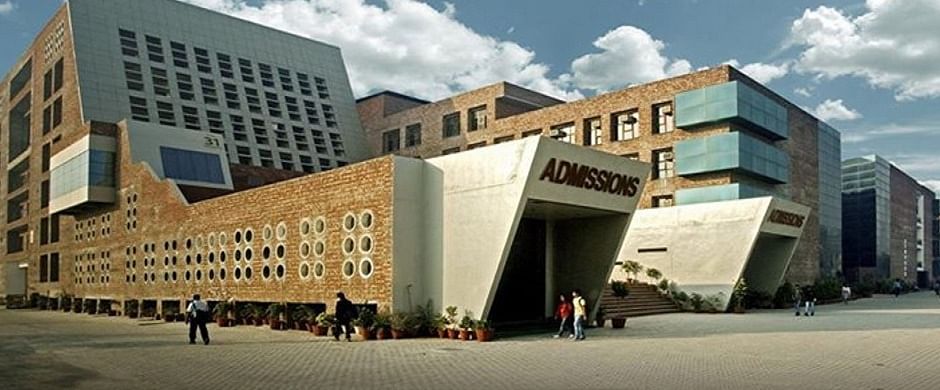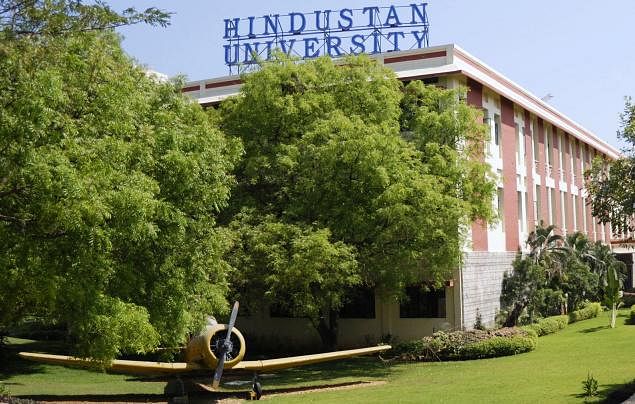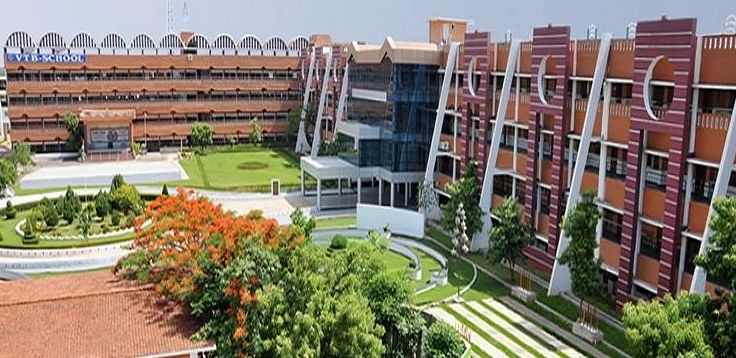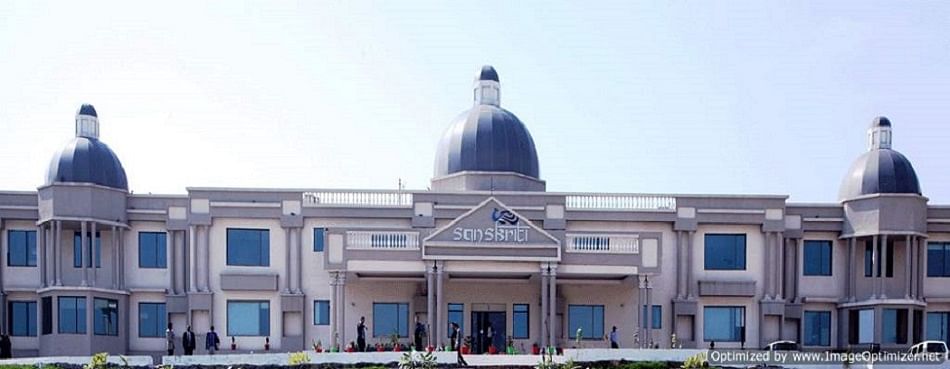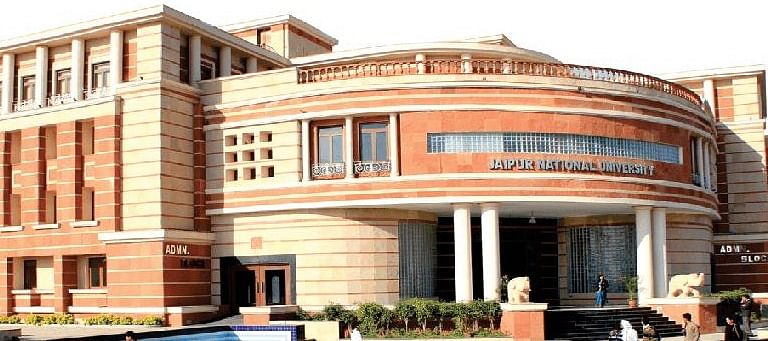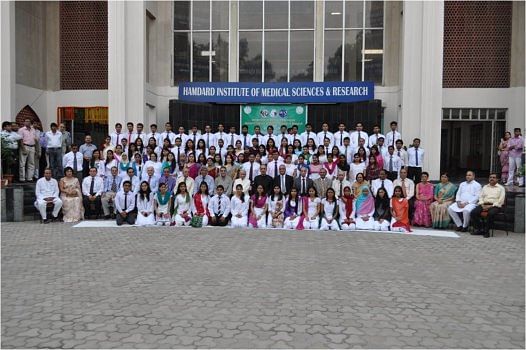B.Sc Cardiovascular Technology Syllabus and Subjects
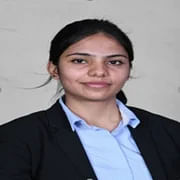
BSc Cardiovascular Technology curriculum includes subjects such as human anatomy, microbiology, physiology, etc., among others, which aid in providing advanced knowledge and understanding of current dynamics and technology in the industry. BSc Cardiovascular Technology job scope is extensive, ranging from the cardiovascular technician, and cardiovascular technologist to echocardiographer.
Table of Content
- Semester Wise BSc Cardiovascular Technology Syllabus
- BSc Cardiovascular Technology Subjects
- BSc Cardiovascular Technology Course Structure
- BSc Cardiovascular Technology Teaching Methodology and Techniques
- BSc Cardiovascular Technology Projects
- BSc Cardiovascular Technology Books
Semester Wise BSc Cardiovascular Technology Syllabus
The BSc Cardiovascular Technology syllabus covers all the topics needed to understand the course. The BSc Cardiovascular Technology course is divided into six semesters and covers a wide range of topics. The topics given for the BSc Cardiovascular Technology each semester are listed below:
BSc Cardiovascular Technology First Year Syllabus
The first-year subjects for the BSc Cardiovascular Technology are listed in the table below, divided into the first and second semesters:
|
Semester I |
Semester II |
|
Human Anatomy |
Pathology |
|
Biochemistry |
Physiology |
|
Microbiology |
Clinical Pathology- Hematology and Blood Banking |
|
Basic electrocardiography |
Cardiac Anatomy |
|
Introduction to Computer Application |
Pathology, Microbiology, Pharmacology and therapeutics Practical |
BSc Cardiovascular Technology Second Year Syllabus
The second-year subjects for the BSc Cardiovascular Technology are listed in the table below, divided into the third and fourth semesters:
|
Semester III |
Semester IV |
|
Introduction to Cardiac Care Technology |
Applied Microbiology |
|
Applied Pharmacology |
Medicine relevant Cardiac Care Technology |
|
Applied Pathology |
Basics of ECG Practical |
BSc Cardiovascular Technology Third Year Syllabus
The third-year subjects for the B.Sc Cardiovascular Technology are listed in the table below, divided into the fifth and sixth semesters:
|
Semester V |
Semester VI |
|
Cardiac Care Technology - Applied |
Hospital and Patient Relation Management |
|
Cardiac Care Technology - Clinical |
Practical |
|
Cardiac Care Technology - Advanced |
Residency Program |
BSc Cardiovascular Technology Subjects
Over the course of three years, students in the BSc Cardiovascular Technology course get a broad understanding of a range of subjects. The course is structured into core topics for the BSc Cardiovascular Technology, with value-based education as an elective. The following subjects will be covered in the BSc Cardiovascular Technology course:
BSc Cardiovascular Technology Core Subjects
The following are the core BSc Cardiovascular Technology subjects that all BSc Cardiovascular Technology students must take:
- Anatomy
- Cardiac physiology
- Pathology, microbiology, pharmacology and therapeutics
- Fundamentals of Computers
- Medical electronics of cardiac technology
- Coronary Angiography
- Basics of Medical Disorders
BSc Cardiovascular Technology Course Structure
The BSc Cardiovascular Technology course is designed in a way that supports students' learning, exposure to real-world situations, and development of critical skill sets. Over the course of three years, the course is divided into core subjects and practicals. The sections of the BSc Cardiovascular Technology course are as follows:
- VI Semesters
- Core Courses
- Practicals
- Internship
- Seminars
- Project Work
BSc Cardiovascular Technology Teaching Methodology and Techniques
To fully comprehend the course, one must have a firm understanding of BSc Cardiovascular Technology teaching strategies and techniques. In order to improve the efficiency of the curriculum, case studies, group projects, and other types of action-based learning are included in the BSc Cardiovascular Technology course in addition to conventional lectures. The BSc Cardiovascular Technology course employs a variety of teaching methodologies, some of which are listed below:
- Practical sessions
- Internship/Training
- Seminars
- Projects
- Regular Lectures
- Group Discussions
BSc Cardiovascular Technology Projects
Team or individual projects gain a significant amount of focus in the BSc Cardiovascular Technology course since they give teachers the chance to assess students' performance and subject understanding. Some of the most common projects for BSc Cardiovascular Technology are listed below:
- Study on Cardiac Energetic Efficiency and Cardiometabolic Disease
- New Developments in the Treatment of Cardiac Implantable Electronic Devices
- Implementation of Digital Health Intervention on Mobile Devices to Support Cardiovascular Disease Healthcare among Public Health
- Challenges and Outcomes of Complex Endovascular Aortic Repair
BSc Cardiovascular Technology Books
The books for the BSc Cardiovascular Technology give students a broad overview of the subject matter as well as a detailed analysis of their particular area of expertise. The following are some of the books for the BSc Cardiovascular Technology course:
|
Name of Book |
Author |
|
Pharmacology for Allied Sciences |
Padmaja Udaykumar |
|
Cardiovascular Technology |
Lynn Bronson |
|
Cardiac Catheterization |
Grossman |
|
Essential Cardiac Technology |
Laurence W Piller |


